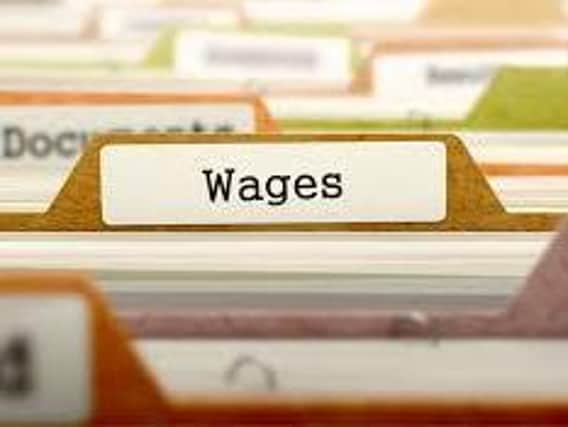East Lindsey residents among the worst paid in Britain


New figures from the Office for National Statistics show East Lindsey had lower wages than all but two areas in the East Midlands – and workers in the district are the 16th worst paid of all local authority areas listed in Britain.
In the East Midlands, only people in Boston and Leicester were worse paid than those in East Lindsey. People in Boston receive the lowest earnings in Britain.
Advertisement
Hide AdAdvertisement
Hide AdMedian weekly earnings in East Lindsey in 2020 were £487.60. That’s almost £100 less than the median weekly UK wage of £587.10 and £73 less than the East Midlands median weekly wage of £561.
Weekly earnings across Lincolnshire in 2020 ranked as follows:
Boston £437.60
East Lindsey £487.60
South Kesteven £530.50
South Holland £574.90
West Lindsey £577
Lincoln £577.50
North Kesteven £620.70
With the tightening grip of coronavirus, latest figures also showed bad news in relation to unemployment.
Unemployment rates increased in all regions of the UK September to November last year compared to September to November 2019, according to the ‘Labour market in the regions of the UK: January 2021’ Office for National Statistics report.
Advertisement
Hide AdAdvertisement
Hide AdThe East Midlands unemployment figure rose by more than any other region except London. East Midlands unemployment rate went from 3.9% to 5.6%.
UK redundancies reached a record high of 14.2 per thousand in September to November 2020, January’s Office for National Statistics ‘Labour market overview’ report showed.
Money advice agencies are urging people to take action to increase their financial resilience and seek help if they get into difficulties.
Lorraine Charlton, Senior Debt Expert at Citizens Advice, says: “The economic impact of coronavirus has had a huge impact on millions of people's finances and many will have fallen behind on essential payments.
Advertisement
Hide AdAdvertisement
Hide Ad“For anyone in debt, the first step is to work out how much you owe. Make a list of whom you owe money to and add up how much you need to pay each month.
“Next you need to prioritise your debts. Rent or mortgage arrears, energy bills and council tax are your priority debts as there can be serious consequences if you don’t pay them.
“Many organisations have put in place protections for people who’ve struggled to pay their bills during the pandemic, so you should contact them to talk about your problems as soon as possible.
“If you’re worried about debt, your local Citizens Advice office can offer free and independent support to help you deal with your debts and get back on your feet.”
Advertisement
Hide AdAdvertisement
Hide AdEast Lindsey’s latest recorded unemployment rate (for the period October 2019-Sept 2020) was 4.9%. That’s as high as it has been since it last topped that figure in October 2014-Sept 2015 when it was 5% after a period of higher unemployment rates that dated back to 2006.
From the beginning of the pandemic, the Money and Pensions Service has been encouraging people to pay extra attention to their financial wellbeing to ensure they are as resilient as possible.
Nick Hill, money expert at the Money and Pensions Service, said: “We know that many people are worried about their own and their loved ones’ physical health at the moment, but it’s vital people think about how coronavirus could impact their financial wellbeing too.
“While this is likely to be a stressful situation for many people, there are steps you can take now to prepare yourself to deal with any financial challenges, and to hopefully give you some peace of mind during the coming months.”
Advertisement
Hide AdAdvertisement
Hide AdA growing number of people are now using Open Bankingtools which, among other things, allow them to see all their bank accounts in one place or be alerted if there are savings they might be able to make on bills or account fees. The number of customers using Open Banking grew from one million in January 2020, to 2.5million in January 2021, according to the Open Banking Implementation Entity.